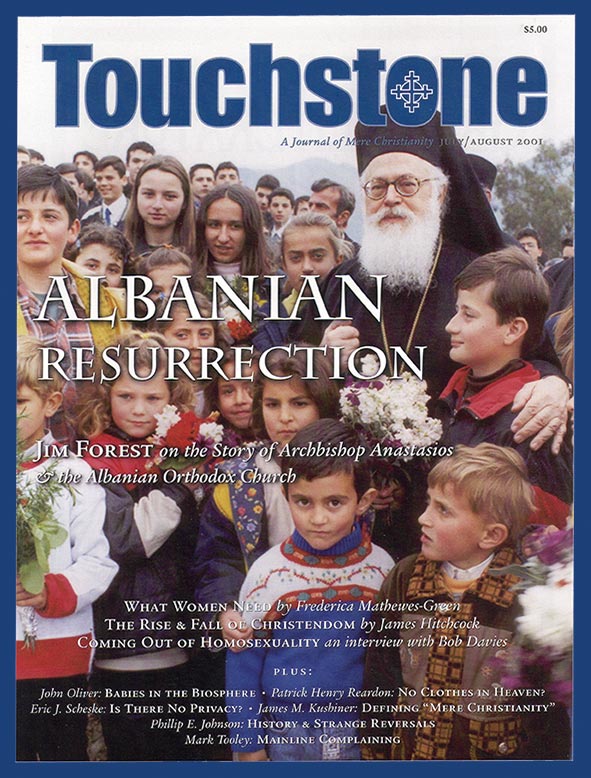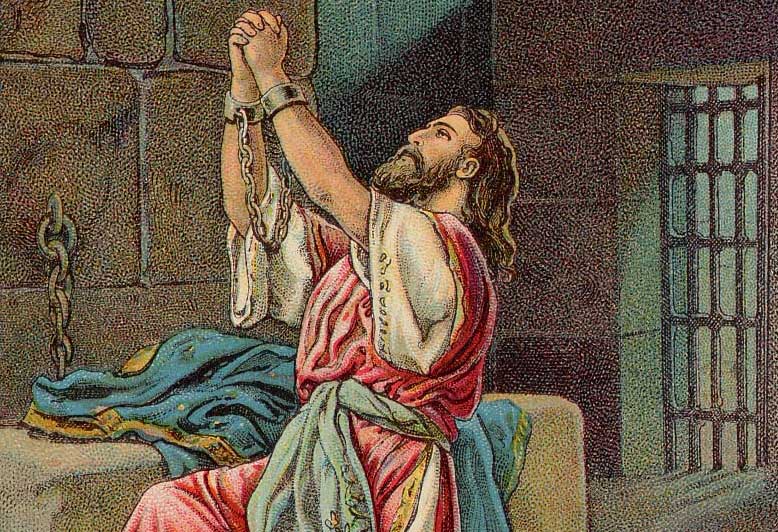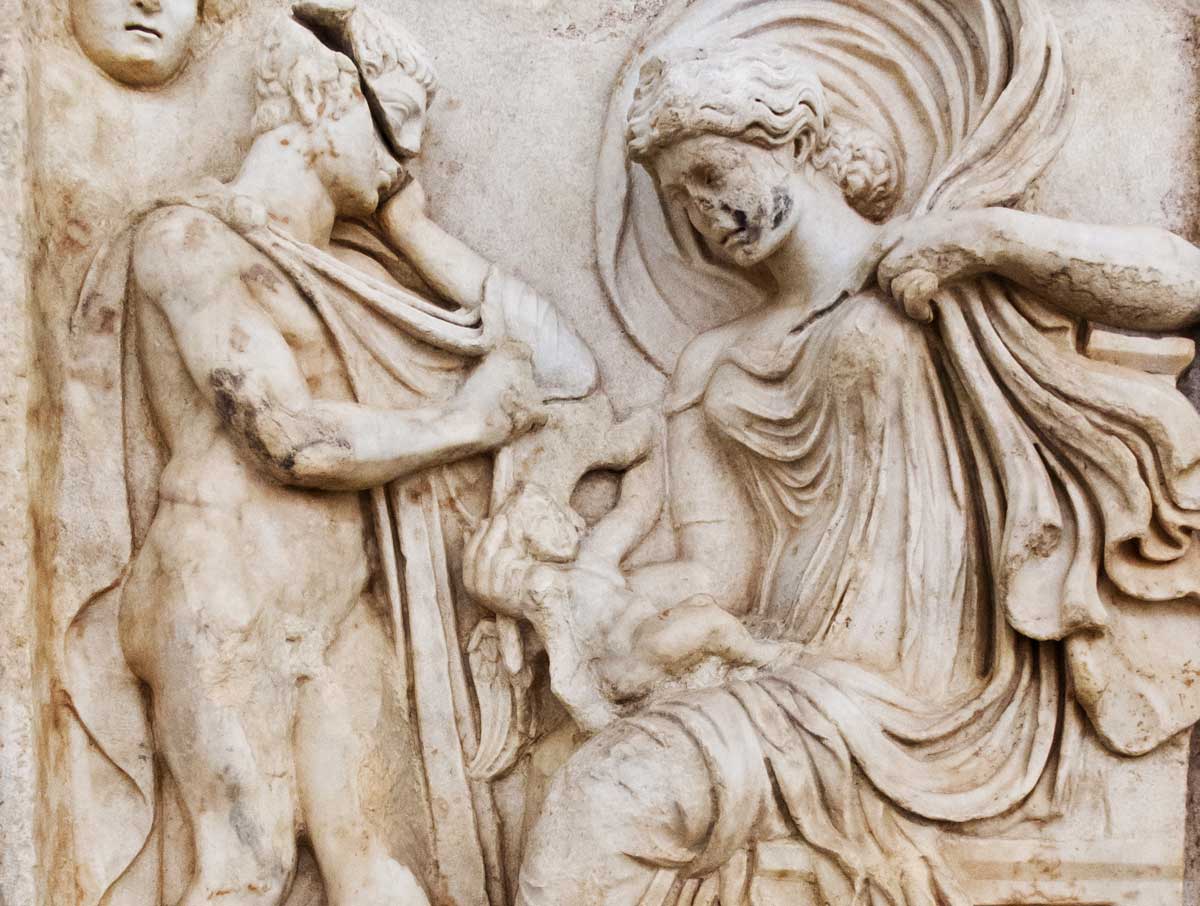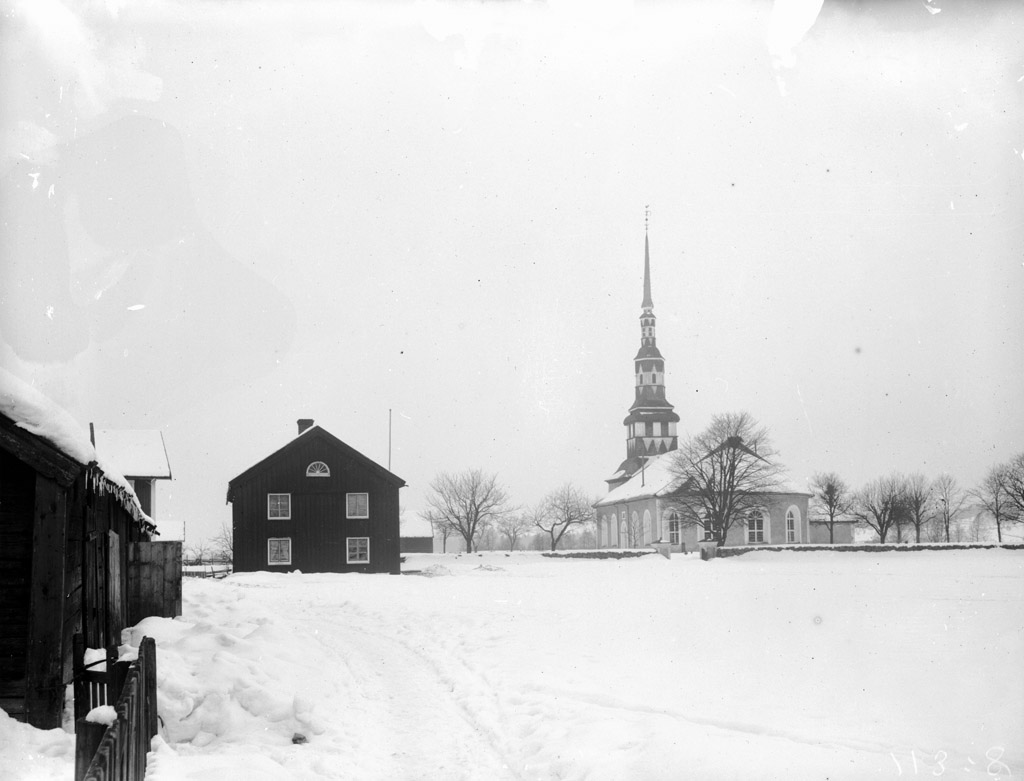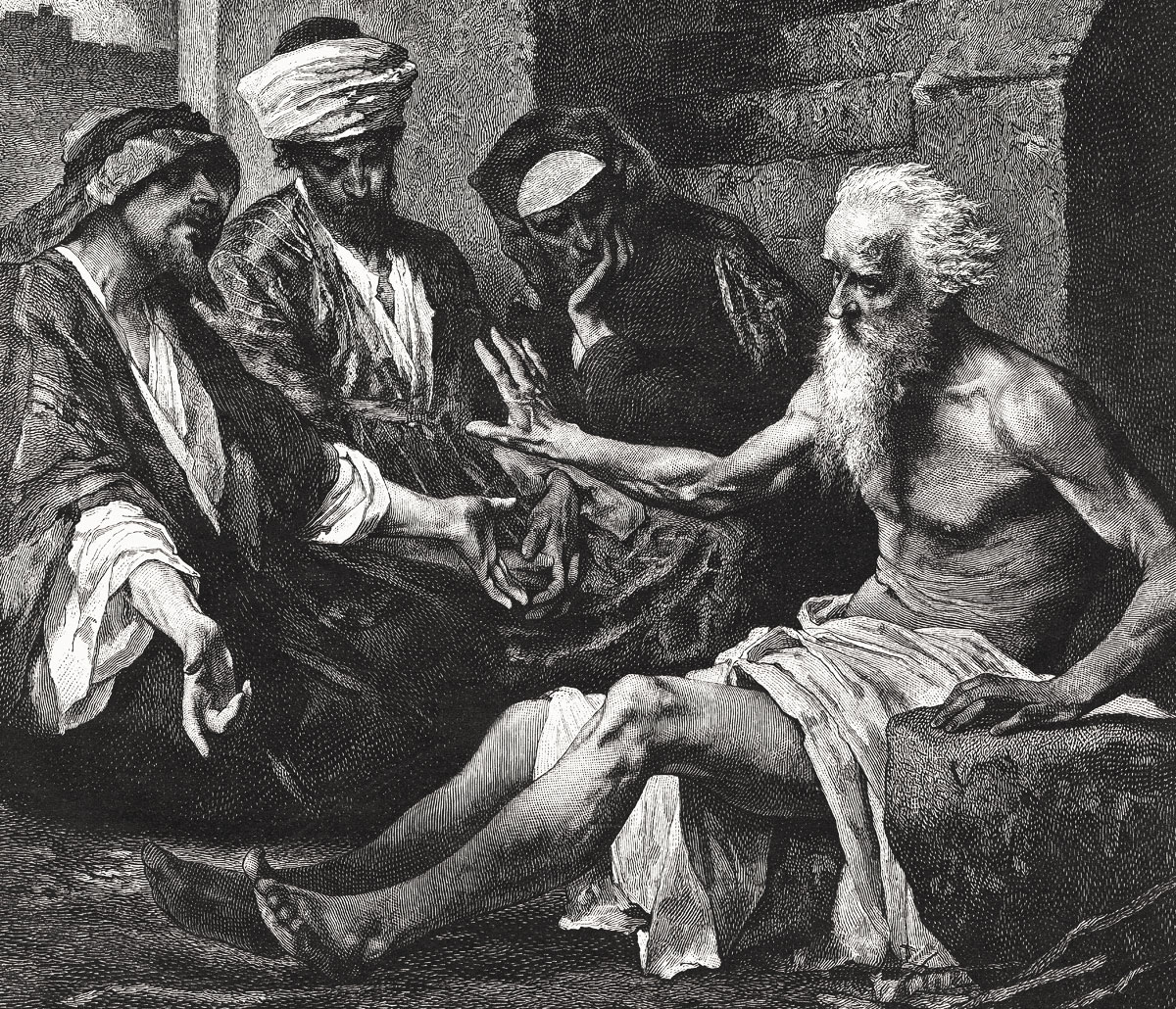Babies in the Biosphere
John Oliver on Abortion as a Matter of Ecology
Imagine a patchwork quilt. Dozens of well-designed individual squares have been sewn together to form an integrated whole. The seams, though visible, are evidence not of division but of relationship and connection. The quilt is the unique within the uniform, and we call it beautiful. But we would not call beautiful a quilt that was torn and frayed and no longer whole. Instead, we might wonder if there was any hope of restoring this fabric.
One consequence of our fall from Paradise is that our cosmology has been shattered. Where there is integrity and dependence, we tend to see separate “issues.” Consider abortion and ecology: These are disconnected in the cultural discourse of political “conservatives” and “liberals” in a way that is neither subtle nor trivial. The champion of one is often the champion of the other, and the enemy of one often the enemy of the other.
Sadly, the fissure is found not only in politics but also in religion: Our clergy, like our political candidates, too often profess no connection between the preservation of our children and the preservation of our world, which these children will inherit.
Creation’s Philosophy
In the ecological discussion of a century ago, the term of favor was nature. Now it is environment. But the better word in any age (certainly for Christians) is creation. The risk of referring only to nature or the environment is that it may introduce into the discussion—unnoticeably—the very philosophy that produces ecological problems: that the natural environment is severed and separate from us, and we are distant and disconnected from it.
Creation has the advantage because it carries its own subtle introduction, not of a philosophy, but of a Person: A creation requires a creator. Then, as man discovers he is not the god of the world but simply a priest, he can assume a more humble position of dependence, with every other creature, on his Father, “in whom we live and move and have our being.”
Creation is a giant—but closed—system. Life exists as a thin skin around Earth, where air meets water and soil. Human and non-human survival depends on the harmony of ceaselessly moving, connected, and intricate cycles of nature, much like the efficiency of an automobile depends on the smooth cooperation of all its inward parts. The fundamental cycles—of water, nitrogen, carbon, sulfur, phosphorus—make repeated use of essential substances found on Earth only in fixed amounts.
Human behavior is today affecting these cycles more powerfully and permanently than the activity of any other organism, because of the human drive for control that Francis Bacon called our tendency to “bind nature into service.” No organism can match our reach, our speed, or our appetite. Beavers will fell a tree to build a dam; humans will fell a forest to build coffee tables.
We humans cannot destroy the biosphere, then order a better one and have it delivered. No, the Creator has given us one creation, and it will yield its promised abundance only if it has abundance to yield. Ecology (from oikos and logy) means “the study or management of the household.” That language is appropriate even for Christians, whom St. Peter calls “strangers and pilgrims” in this world. Risking a cliché, the Earth is our home away from Home. The Creator-creation drama is played upon a stage of soil and water and air, and on that very stage we pray that our Father’s will be done as it is in heaven.
Modern political discourse has proven insufficient to articulate either the merit of ecology, the madness of abortion, or the connection between these two subjects. For that, we must rely on the seamless, holistic Christian Tradition founded by Christ, fleshed out by his disciples and his early Church, and furthered by faithful men and women through the ages.
As Christians, our bias flows from our Tradition; our Tradition does not flow from our bias. That is a critical distinction. It means that we craft our engagement with the world according to a specific worldview—a revealed, not contrived, understanding of reality. That reality is this: All that God creates is sacred. And all life, everywhere and in every form, as part of that creation, is sacred.
Life Is Sacred
The word sacred suggests holiness, transcendence, divinity received from the Divine himself. We do not bestow sacramental character; we discern it. Such discernment requires a purity of vision that does not come easily, for the scales remain thick on our eyes. But by effort and grace, it does come. And it brings astonishment.
Writing in the seventh century, St. Isaac the Syrian describes this purity of vision. He who acquires it has a heart “burning with a loving charity for the whole of creation, for men, for the birds, for the beasts, for the demons—for all creatures,” he writes.
He who has such a heart cannot see or call to mind a creature without his eyes being filled with tears by reason of the immense compassion which seizes the heart; a heart which is so softened and can no longer bear to hear or learn from others of any suffering, even the smallest pain, being inflicted upon any creature. This is why such a man never ceases to pray also for the animals, for the enemies of truth, and for those who do him evil, that they may be preserved and purified. He will pray even for the lizards and reptiles, moved by the infinite pity which reigns in the hearts of those who are becoming united with God.
Any worldview honors God if it affirms the value of non-human life, the animals, even the “lizards and reptiles.” Any worldview fails to honor God if it does not affirm the value of unborn children, those creatures on whom “suffering [is] being afflicted.” In St. Isaac’s description of how to engage the world, we discover a fiery, comprehensive love for the world we are engaging.
Christianity is distinguished from earth-worshiping religions by a recognition that although all life is sacred, there is a hierarchy—that as precious and necessary as a sequoia tree is, our children must be protected even more rigorously than our forests. The human being comes first because each human soul will live forever. But that does not mean that non-human creation is ours to use, and abuse, as we please. On the contrary, we should keep creation as pure and intact and unhindered as possible because through it God sustains life on earth, including ours . . . and our neighbor’s.
Notice the connection? Caring for the natural world can be an expression of love for our God who made it and our neighbor who lives by it. A commitment to clean air and food and water is a commitment to our neighbor who breathes and eats and drinks—and who is a spiritual being, for human souls are nourished by the spiritual lessons in nature.
“Creation,” wrote St. Athanasius in On the Incarnation, “as if written in characters and by its order and harmony, declares its Creator. God, by his Logos, gave creation order so that men might know him through his works.” That he might be known by men and women and children, born and unborn.
The whole problem with a government that protects births but gives up forests is that it is half-right. One way to protect our children is to protect our forests. Religious coalitions for forest conservation exist precisely because we who are religious want our children (and all children) to meet God in the redwoods, discover forest animals, have fun with pinecones, feel the cool of the tree shade, and learn that the abundant life Christ came to give is discovered better through ecology than economics. All of that is in danger if we do not protect our young and our land. It is a terrible tragedy when a child is denied the joy of discovering the forest—either because there is no child or because there is no forest.
The whole problem with a government that protects forests but prevents births is that it, too, is half-right. A government must protect both, but children especially. It’s a simple equation, really: Abortion is the killing of children; it is the business of government to prevent the killing of any child; therefore, it is the business of government to prevent abortions. There should be no equivocation about this. Some things are simply not negotiable—they are what classical philosophy calls “First Principles.”
If the gift of life is stolen from the most innocent, vulnerable, and defenseless members of society, America has crossed the line from a civilized society to a barbaric one. When our country can no longer hear, over our shouting for cleaner rivers or lower taxes, the cry of the unborn child and the anguish of his mother—or worse, when we no longer care—we have reached a crisis point.
Christian Ecology
The solution? To recover the Christian ecological mind. Ecology is the study of relationships, of connections, of making a household. It means that we understand the consequences of a clear-cut forest or a dammed river—that not only is the forest or river diminished but also the larger habitat, the species dwelling there, weather patterns, the soil, and eventually people.
To think ecologically is to see that when a forest or river dies, part of humanity dies. Yes, our food and air are affected, but also our imagination is numbed, our sense of wonder is dulled, and our conscience feels less troubled with the destruction of the next forest or river. We grow disinclined to seek God, who hides in the very natural world that sustains our lives.
But more than all that, a consistent ecological way of life understands the relationship, the connection, that joins each human soul with another. We who are Christian profess a belief in Christ, who is the binding agent of the cosmos. When St. Paul records the large litany of humanity’s woes in Romans 1, he traces the entire cosmic illness back to our failure to be eucharistic and doxological beings: beings who give thanks and glory to God. The disintegration of our relation with each other, we learn, is the result of our disconnection from God. Each horizontal relationship will be healed only if the vertical relationship is healed first.
Many Orthodox Christian parishes have a dome on the ceiling that holds a large icon called “Pantocrator”—Christ covers the nave and (symbolically) the world. The icon’s name means “all-powerful, all-knowing,” but it also describes this cosmic property of Christ, who, as St. Paul teaches the Colossians, “holds all things together.” Our worldview must be a vision of all things in Christ and Christ in all things. That is the ecology of the Christian; the Christian prays that it will be the spirit of the age.
It is a worldview that recognizes that to fight for the environment so that we can enjoy life, while denying life to those who would enjoy the environment, is a position of great spiritual poverty. It is selfishness hiding behind social activism.
To think ecologically about a woman and her child is also to see that when a woman aborts her young, part of her dies. It is the part of her that Planned Parenthood tells us does not exist; they hide it under the rhetoric of freedom and choice. The message is that babies should only be born if their moms choose for them to live.
But when we think that way, all of humanity is diminished: The innate impulse to preserve and protect life is gravely damaged; our society grows more tolerant of murder and violence of all sorts (physical and rhetorical); and a woman and her baby are sadly placed in opposition to each other. Because it aborts relationships and connections, abortion is profoundly anti-ecological.
The integrated Christian, then, possesses a pro-life view that sees the environment as life-giving and worthy of protection, and a pro-environment view that sees the womb as an environment and worthy of protection.
Consuming Overpopulation
Let us consider overpopulation. Secular environmentalists often cite the effect of overpopulation on natural resources as justification for abortion.
Social scientists are hotly divided over estimates of how many people the planet can sustain—some say twice as many as are living now, some say we have already way overdrawn our ecological bank account. The current population doesn’t seem to be sustainable: The degradation of the earth’s closed and fixed natural cycles is too rapid and too widespread. But any discussion of population must always include a discussion of consumption. As Ghandi observed, “there are enough world resources for everyone’s need, but not for everyone’s greed.”
Strategies to limit families to no more than two children have support even within some religious communities. Abortion, birth control, and state-mandated sterility have proponents who argue that a world population without limits will irreversibly damage the very ecosystems on which populations rely for meeting even basic needs.
They are right, of course, about the toll a swelling population will take. But here is a different way of considering the problem, from within the Christian Tradition. In Psalm 127, David recognizes that children are a “reward from the Lord . . . blessed is the man whose quiver is full of them.” Ancient Israel did not think that children would drain the spiritual and creative energy of the family. Godly initiation for them included learning a craft that would benefit the family and the community. Children were raised not to consume but to contribute.
Population control advocates who support abortion are, like most governments, half-right: Swelling population is a problem. But the problem is rooted more in behavior than in size. An American child, for example, will grow up in a country that contains four percent of the world’s population, but consumes 25 percent of the world’s natural resources, drives one-third of its automobiles, and is its number-one polluter.
If the majority of the world’s population had the productivity of the Swiss, the consumption habits of some Oriental cultures, the egalitarian instincts of the Swedes, and the social discipline of the Japanese, the planet could agreeably sustain a growing population. If, on the other hand, the world had the productivity of some African countries, the consumption habits of Americans, the egalitarian instincts of India, and the social discipline of Brazil, then the planet could not sustain even our current numbers. Global population is an issue connected to global consumption.
The advocates of forced population control assume that children will automatically be part of the problem. A quick survey of teen culture today might support their position. But can children be raised to be part of the solution? The Christian Church thinks so. In The Path of Salvation, St. Theophan the Recluse—an Orthodox saint of nineteenth-century Russia—offers insights into how to train children to have an appropriate sense of self, not inflated or greedy, but preserving the state of inward fulfillment received at baptism. He writes of vigilance and persistence:
When the parents protect the cradle of their child with a spirit of sincere piety . . . there is formed around the newly begun life a spiritual atmosphere. The parents should follow all the movements of the child’s awakening powers and direct everything to a single end . . . considering nothing unimportant in such an important matter.
A Great Effort
What St. Theophan describes requires great effort, but effort known to anyone who proclaims the sanctity of unborn children and of the natural world they will inherit. The support structure of the local church—if grounded in the historic Christian Tradition—will help, for even a slow cultural conversion to a reverence for all life requires a strength and an imagination greater than that of any individual.
Truth be told, it requires the strength and imagination of the Greatest Individual. When Jesus gave up his spirit on the cross, the curtain of the temple was torn asunder from top to bottom. If we look closely, we can see our cosmology there also, torn and frayed and hanging. For neither do we in this age accept a God who “so loved the cosmos that he sent his only begotten Son.”
But God is merciful and has not abandoned this age. And the torn curtain of Good Friday becomes the blessed burial cloth of Easter Sunday—a symbol of a worldview that is beautiful and integrated and whole. It is evidence that Christ has been here.
John Oliver is a husband to Lara, a father to Anastasia, and a layman in the Orthodox Church. In addition to writing on Christianity and ecology, he is the author of “An Island for America: A Monastic Pilgrimage and a Journey Home,” an account of a pilgrimage to Russia’s Valaam monastery due to be published this fall. He is currently the manager of the Cokesbury Music Service of the United Methodist Publishing House in Nashville, Tennessee.
subscription options
Order
Print/Online Subscription

Get six issues (one year) of Touchstone PLUS full online access including pdf downloads for only $39.95. That's only $3.34 per month!
Order
Online Only
Subscription

Get a one-year full-access subscription to the Touchstone online archives for only $19.95. That's only $1.66 per month!
bulk subscriptions
Order Touchstone subscriptions in bulk and save $10 per sub! Each subscription includes 6 issues of Touchstone plus full online access to touchstonemag.com—including archives, videos, and pdf downloads of recent issues for only $29.95 each! Great for churches or study groups.
Transactions will be processed on a secure server.
more on abortion from the online archives
more from the online archives
calling all readers
Please Donate
"There are magazines worth reading but few worth saving . . . Touchstone is just such a magazine."
—Alice von Hildebrand
"Here we do not concede one square millimeter of territory to falsehood, folly, contemporary sentimentality, or fashion. We speak the truth, and let God be our judge. . . . Touchstone is the one committedly Christian conservative journal."
—Anthony Esolen, Touchstone senior editor





